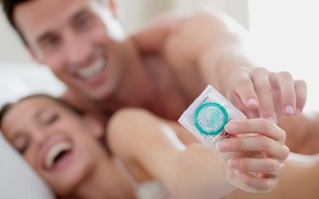People with prostatitis have doubts about whether it is okay to have sex. This is a sensitive question that needs to be addressed.
The prostate gland is inflamed in more than half of men, so the issue of sex with prostatitis is very relevant. In addition, the pathology is accompanied not only by painful urination, but also by impaired sexual function (decreased libido and activity).The effect of sex on prostatitis
Most of the time, men think it is impossible to have sex with prostate disease. But this is a misconception, because sexual intercourse has the most beneficial effect on activity and healing processes.
It is known that prostatitis results from lack of sex and congestion. This is because during ejaculation, secretion is released, resulting in an increase in the amount of testosterone (male sex hormone) produced. In addition, regular contact has the following effect:
- prostate juice is actively produced.
- Blood flow to the prostate is restored. Sperm removes breakdown products from the area of inflammation.
- improves the nutrition of cells and tissues due to the active blood supply.
- the prostate massages as part of the muscle contraction.
- pain syndrome is reduced.
- Erectile function improves.
In acute form
When prostatitis is acute, the drug is not recommended for sexual intercourse. The reason for this is the intense pain that will intensify during intercourse and ejaculation. In addition, the pain is felt even at rest. And the man will not receive pleasure during the period of deterioration.
For chronic form
In the case of a chronic course of the disease, on the other hand, sexual intercourse occurs. In addition, sex should be as regular as possible. The pain during this period does not appear, the person experiences pleasant sensations.
The only downside is the weakening of the erection. But this can be corrected if you follow all the recommendations of the experts. And especially in terms of psychological aspects. Because in this context, the husband avoids contact with his wife, and this leads to the development of new stagnant phenomena. As a result, the disease progresses with new vigor.
However, it is not recommended to have excessive sex, as prostate inflammation can not withstand significant loads. Therefore, you must adhere to the golden mean.
Sex after treatment
If the prostatitis was not advanced, then conservative methods are sufficient for treatment. In this case, after complete recovery, the intimate life improves on its own. But if radical treatment methods were used - removal of the prostate - then you should follow these rules to continue sexual intercourse:
- intimate life can continue 30-50 days after surgery.
- Physical activity during rehabilitation is excluded.
- Physiotherapy procedures are recommended.
- you should visit a psychotherapist to restore the psycho-emotional background.
The prognosis for the return of male strength depends largely on the surgical method used:
- After transdermal surgery in 90 out of 100 cases, the power is restored, but it becomes impossible to conceive a child, as the ejaculation takes place in the bladder.
- after open prostatectomy, intimate life improves.
- If the prostate is removed with a laser, sex life is also restored.
When a man had complete impotence before surgery, postoperative erectile function was not fully restored.
When is sexual intercourse with prostatitis prohibited?
As mentioned above, it is forbidden to have sex when the disease worsens, as a man will experience unbearable pain and the symptoms will worsen.

But there are other situations in which sex has a negative impact:
- The bacterial type of prostatitis in acute form leads to the spread of the inflammatory process to other organs of the small pelvis, the kidneys. In addition, there is a risk of infecting the partner. For these reasons, complete abstinence is required until the moment of recovery.
- The presence of female diseases in the partner, especially the bacterial form.
- If there is no ejaculation during sexual intercourse. The sperm produced by the prostate stops in the organ, which worsens the patient's condition.
- When women change often. The fact is that each person has their own microflora of the genitals, to which the male body must adapt. If you change it constantly, then prostatitis gets worse and more complicated - the inflammatory process does not allow you to change quickly.
- Excessive contact leads to increased prostate stress.
- Stop having sex. In this case, the prostate is not completely emptied and sperm residues contribute to the proliferation of pathogenic microorganisms.
- Inflammatory processes in the sperm tuberculosis and vesicles - the pain will be there.
- An abscess in the prostate leads to blood poisoning, as the capsule may burst and pus may enter the bloodstream.
- Presence of stones in the prostate (they will damage the tissues and blood vessels).
- Bladder formation is dangerous due to rupture and internal bleeding.
How often is it recommended to have sex for prostatitis?
During intimate mating, the prostate produces ejaculation, which contains many nutrients that saturate the male genitals. After ejaculation, the sperm begins to synthesize again, so sex must be present in the life of a patient with prostatitis. But how much should there be? In fact, there are no standard standards, so every man is required to have sex as many times as he did before the illness. But it should not be less than 3 or 4 times a week.Psychological point of view
A disease like prostatitis often leads to a cooling of emotions in a married couple because a man's power decreases. In this context, he begins to fear intimate relationships, which affect the psychological state.
Persistent fears significantly weaken libido, speed up the ejaculation process and reduce erection. To avoid this, the man and his partner must coordinate a positive outcome. A woman is obliged to encourage her husband and not to stop having sex with him. Otherwise, the husband will not prefer sex, but also other activities - he will find a new hobby, he will start drinking alcohol, which will affect even worse the inflammation of the prostate and the psychological background.This leads to pathology, external irritability and even aggression, while stagnant ejaculation will cause nocturnal emissions. If a couple can not cope with psychological problems alone, they should seek help from a specialist - sexologist, psychotherapist or psychologist. Medical help from such doctors is also necessary in cases where a man does not have a permanent partner who will deal with the problem with understanding.
You can go to a sexologist on your own, but it is better for your wife to visit her, because the specialist will teach her the correct behavioral tactics.
Contraception for prostatitis

A condom for prostatitis should always be in the bedroom of a married couple. This is due to the fact that the female microflora with inflammation of the prostate can have a negative effect, as it contains conditionally pathogenic microbes that easily penetrate the urethra and gland.
Contraception is used not only for normal sex, but also for oral, anal sex, because microorganisms are also present in the oral cavity and rectum, and in large quantities. These bacteria have a strong microbial load that the reproductive system cannot handle.
Anal sex with prostatitis
It is not forbidden to have anal intercourse with prostatitis of the prostate. Therefore, you can do it safely with a woman. If we are talking about representatives of non-traditional orientation, then a sick man, who is passive, can also have anal sex. In addition, this procedure promotes prostate massage. But you should know that massage with the genitals through the rectum does not have a strong therapeutic effect, unlike the massage done with the finger of a qualified specialist.
When anal sex is contraindicated:
- The patient should monitor the condition of the prostate - if symptoms begin to worsen, then anal stimulation should be abandoned because the inflamed gland is irritated and swollen.
- If a man uses anal suppositories for treatment, anal intercourse is contraindicated. The fact is that many suppositories contain substances that damage the latex (condom material). This leads to a new infection and it is strictly forbidden to have anal sex with prostatitis without contraception.
- You should refuse contact if there is a tumor on the prostate or stones.
Is masturbation allowed?
Based on the above material, it is clear that it is necessary to have sex during the period of remission of prostatitis. But on the other hand, it is undesirable to change partners. And many representatives of the powerful half of humanity are ashamed to have sex with a new partner because of the weakened erection. Then the question arises: what should a man who has no wife do? The answer to such a familiar question is ambiguous:
- Old-school doctors categorically blame this type of activity, linking it to the fact that with prostatitis, a person should not overdo the body. It seems to him good rest, peace.
- Modern medicine dictates its own rules - masturbation is useful. Indeed, with prolonged abstinence, the male reproductive system suffers from atrophy. Stagnation develops into it, in the development of which pathological disorders such as cancer, thrombosis and so on develop. In addition, the stagnation of sperm in the body causes infertility and total impotence.
Thus, if a man has a regular partner, he may refuse to masturbate by engaging in traditional forms of sex. But if there is no partner, then it is better to use self-satisfaction
If a man is diagnosed with prostatitis, but not in the acute stage, he should not refuse sexual intercourse. But this must be done correctly and necessarily after consultation with the treating andrologist. It is the doctor who will give specific recommendations regarding the frequency of the operation, based on the course of the disease.


























